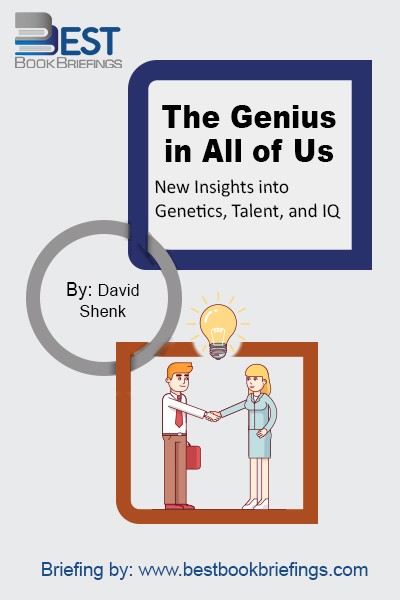The Genius in All of Us
New Insights into Genetics, Talent, and IQ
Editorial Review
With irresistibly persuasive vigor, David Shenk debunks the long-standing notion of genetic “giftedness,” and presents dazzling new scientific research showing how greatness is in the reach of every individual. DNA does not make us who we are. “Forget everything you think you know about genes, talent, and intelligence,” he writes. “In recent years, a mountain of scientific evidence has emerged suggesting a completely new paradigm: not talent scarcity, but latent talent abundance.” Integrating cutting-edge research from a wide swath of disciplines—cognitive science, genetics, biology, child development—Shenk offers a highly optimistic new view of human potential. The problem isn't our inadequate genetic assets, but our inability, so far, to tap into what we already have. IQ testing and widespread acceptance of “innate” abilities have created an unnecessarily pessimistic view of humanity—and fostered much misdirected public policy, especially in education.
Book Reviews
Books on Related Topics

Practical wisdom is the essential human quality that combines the fruits of our individual experiences with our empathy and intellect-an aim that Aristotle identified millennia ago. It's learning the right way to do the right thing in a particular circumstance, with a particular person, at a particular time. But we have
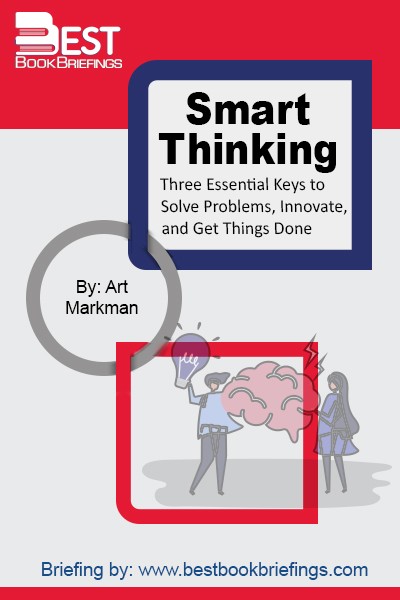
Some researchers suggest that IQ tests are not good at predicting success because they do not measure the right forms of intelligence or the right combinations to predict how well people will do in real situations. But even that more nuanced way of thinking about intelligence falls short as an explanation
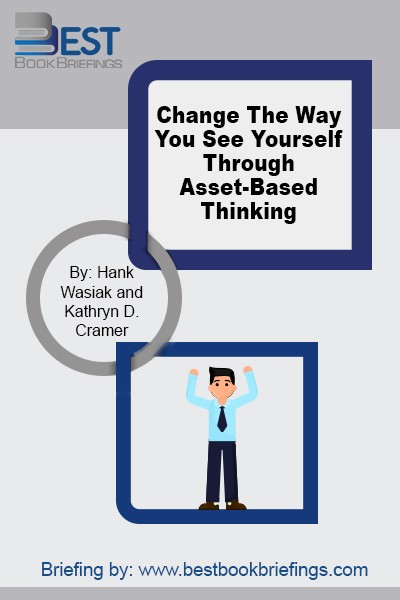
“Whatever you admire in someone, you have in yourself-if only but a glimmer. In fact, when a person’s talent, virtue, skill or attitude strikes you as amazing, you can be sure it’s something you want more of for yourself. You are ready, willing, and able to incorporate it into your repertoire

Is there a set of traits shared by all truly great achievers—those we deem extraordinary—no matter their field or the time period within which they did their important work? In an attempt to answer this question, Gardner first examines how most of us mature into more or less competent adults. He

The first time my father met Donald Trump was in the early ‘90s. They were both in their mid-forties and coming out from under financial ruin. Trump’s self-named organization was crumbling under the weight of the debt he’d piled up his mistress was newly pregnant, and his ex-wife was destroying him in
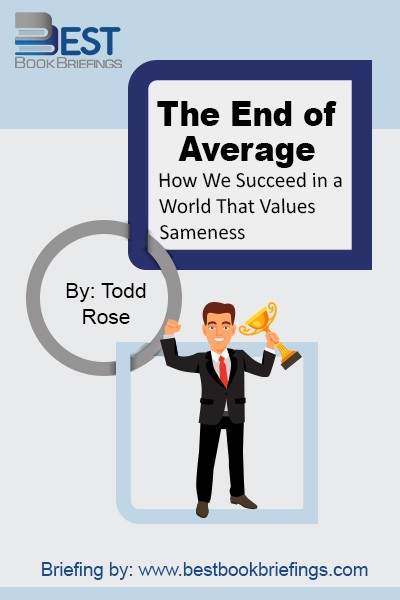
From the cradle to the grave, you are measured against the ever-present yardstick of the average, judged according to how closely you approximate it or how far you are able to exceed it. Today, however, we are on the brink of a new way of seeing the world, a change driven
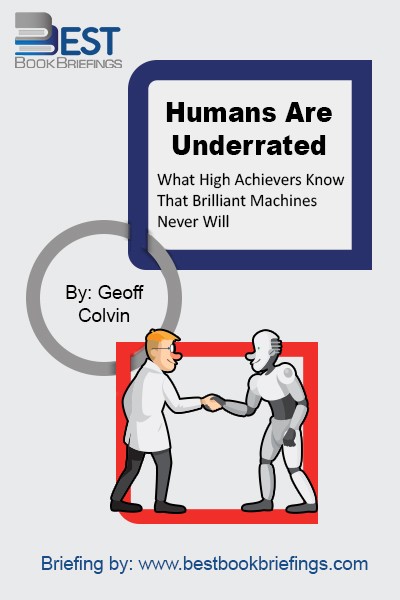
In the economy of a few years from now, what will people do better than computers? Technology is rapidly invading fields that it once could not touch, driving cars better than humans do, predicting Supreme Court decisions better than legal experts, packing boxes, identifying faces, scurrying around hospitals delivering medications, all

